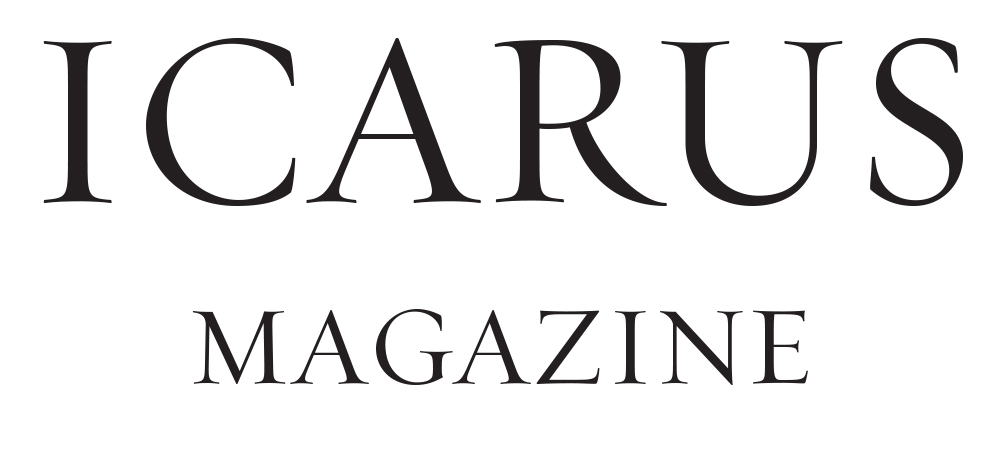Volume 1
May, 1950.
Editors: Cecil Jenkins, Rosalind Brett-Jones and Peter Devlin.
Click to read the first issue, exactly as it appeared more than half a century ago.
— Excerpts —
Rosalind Brett-Jones, 'The Green Cheese Moon'
"Are you really Sir Lancelot?" Her tone of voice had revealed surprise. He had felt that his armour was inadequate under the prolonged gaze of her shining, dark eyes. She seemed to look for some transformation in him.
"You were so different in the glass," she continued. "I have left my tower; the mirror has cracked; the web has floated away; I have never seen the world before. I have done all this for you."
She looked at the man before her. He was so fat from over-eating that the flesh bulged out between the joints of his armour; his lips curled loosely in a sneer; she saw his soul, ashen, empty, grasping, sucking her own away.
Can't resist reading about a fat Lancelot? Read 'The Green Cheese Moon' in full.
Richard Kell, 'City Spring'
The city laughs, pelted with warmth and colour;
people and things drink from a lake of light,
and tall stone figures are warmed alive and longing
to strive into the sun's mythology.
[…] And the mind takes afresh these glowing threads,
weaves them in its silent loom and spills
like a brook the polished cloths of April thought.
Want more springtime vibes? Read Kell's poem in full.
Richard Kell was born in Youghal, Co. Cork, in 1927. After studying TSM English and French at Trinity, he went on to become senior lecturer in English at Newcastle Upon Tyne Polytechnic. His first collection of poetry, Control Tower, was published in 1962. He has since published eight more.
Cecil Jenkins, 'Pigeons'
There was no life here, no longing, and no fulfillment. There was no meaning here, for sound and colour and movement were one. And there was no completeness, for the calm was impressed with the memory of forgetfulness. This was only a halting place. There was peace here, but it was a shallow peace. And yet it all seemed so calm and empty and beautiful.
Click to discover what pigeons have to do with all of this.
Harry Keating, 'A Very Ancient and Fishlike Smell'
'Can he be dead?' she asked herself in a sudden panic. 'Is this the odour of Death?' She thought of all the consequences of this. The delay, the stretcher bearers, the questioning. 'Ought she to find out if he was?' Someone else was bound to notice soon.
Was the stranger really dead? Did anyone else notice? Find out what happens next.
Volume 2
February, 1952.
Editors: Richard Kell, Caroline M'Quade and Richard Power.
Click to read the second issue. It would have cost you a shilling back in '52, but this one's on us.
Richard Kell, 'Firmament'
Do not perturb the stillness of his faith,
whirlpool of fire renew—spitting stars—
that long ago his sorrow clenched and pruned
into a ball of gold. Manœuvre this
bright glove that you have made, though twice as powerful,
as tranquil distances from all the others;
or try a clash with one that's yet unrolled,
still waving enthusiastic arms of light.
If faith meant more than private inclination,
a skilful of different faiths could have not have glinted.
Had you come nearer truth it would be something:
but what have they revealed, these white explosions,
this blazing dialectic? You began
adrift in space and now, for all you've said,
you drift in space; and still the cold black sea
awards no final cry of land ahead.
Bryan MacMahon, 'Chestnut and Jet'
When April came, Joe Morrissey the farmer took down the nail-box from the top of the dresser and rummaged in it to discover the sire-horse's ribbons and rosettes. When at last he found them, they were in sorry over-winter trim. Each year it was the same. Each year he had to ask the milliner in town to make him a new set so that his stallion should look his best as he paraded the town on market day.
The black stallion was taken from the drudgery of the spring work and petted. Jack Donnell the young-old groom gladly abandoned the ploughing of furzy uplands and began to give the horse his April delicacies: porridge and new milk and beaten eggs and oats. There was also a mash, the ingredients of which he kept a tight-fisted secret. Dandruff-brush and curry-comb were unearthed and plied. Gradually the camouflaged splendour and dignity and terror of the animal emerged. Out in the farmyard the as yet white sunlight caught him in swaths on flank and haunch and chest and heliographed his power to the awakening countryside. The horse sloughed winter, welcomed summer, and trumpeted the indignities of his spring. He seemed to find the touch of the cobbles intolerable. He began to whistle and bell. His challenge was the blending of a cluster of four handbells in four different tones mingled with the far-away whistle of a railway engine. This extraordinary noise was the overture of his chaotic blood: making the noise, his nostrils were two pouches lined with a terrifying red velvet.
E. Caroline A. M'Quade, 'Over into the Heart of Life'
Over into the heart of life
Waves leap, glisten,
Tinkling on to the pebbles
And brittle shells.
Into the limpid pool bubbles
Surge of the tide,
Rushing past rocks,
Slither, slide
Over the sands
In ecstasy of sunlight,
And the cry of a gull
Catches the breath,
As reality sharpens sense,
And the whole is full.
Tightly drawn delight
Sings as the string
Of a violin vibrates,
While the intoxicated hope
Of unfulfilled experience lives on
In a dying cadence.
Find M'Quade's poem here, opposite an ad for The Hunting Horn Restaurant.
Volume 3
November, 1953.
Editors: Allen Synge, E. Savours, Peter Gardner and Alec Reid.
